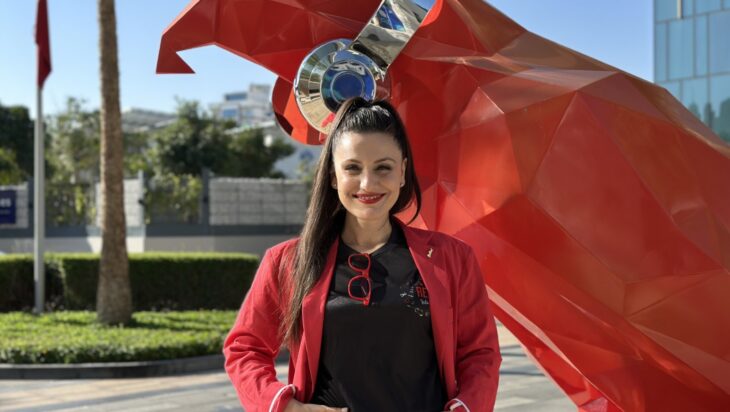Why flexible work could be hospitality’s most valuable asset

In an industry that’s built on 24/7 service, giving frontline hotel staff two extra off days and two work-from-home days per month sounds radical. Now, a Dubai hotel is challenging that norm with a bold experiment it believes could change how the sector retains talent, boosts guest satisfaction and stays competitive in the Future of Work.
Challenging a centuries-old model
Hospitality has long been an industry of unyielding schedules. Rota systems, long shifts, and “always-on” expectations have been the standard for decades, particularly for guest-facing teams. Hybrid work policies, when they appear at all, are almost exclusively reserved for corporate or back-of-house staff.
But this August, Radisson RED Dubai Silicon Oasis is breaking the mould with a month-long wellness trial, giving all managers and supervisors – both operational and administrative – two extra days off and two work-from-home days.
The move is unprecedented in the regional hospitality sector, not only for its inclusivity but also for its operational boldness. “Hospitality is a people business,” says the hotel’s General Manager Nina Petridis. “If we want our guests to feel cared for, our team has to feel cared for first,” she adds.
The business case for wellness
This isn’t just goodwill; it’s about competing in a high-stakes market. Tourism makes up 12% of Dubai’s workforce, with hospitality’s GDP contribution projected to hit AED 195 billion in 2025. By 2030, Dubai is set to add 20,000 hotel rooms as part of the UAE’s drive to attract 40 million annual guests, boosting tourism’s GDP share to AED 450 billion.
Meeting that growth will require 30,000 – 40,000 more staff in five years, yet the region faces a talent crisis. Turnover nears one-third annually, driven by low motivation, poor benefits, work-life imbalance, and delayed pay rises as cited by 68% of employers.
“Retaining skilled people is no longer an HR challenge. It’s a business imperative,” says Petridis. “Wellness initiatives aren’t an expense, they’re an investment in service quality, reputation, and retention.”
The economics back her up. Corporate Wellness Magazine links healthier employees to lower healthcare costs and fewer sick days, while the World Economic Forum finds every $1 invested in mental health delivers a $4 return. This makes a compelling case in a region where productivity gains are critical.
Evidence from around the world
Data from the UAE and global markets shows structured flexibility can deliver measurable business value.
In Sharjah’s government sector, a shift to a 4-day work week saw 90% of employees report satisfaction, with 86% noting increased productivity and 89.9% citing improved work performance.
Internationally, 4 Day Week Global, piloted reduced hours in 200+ companies across Ireland, the US, Europe, South Africa, Australia, and New Zealand, with consistently positive results including: better mental and physical health, higher life satisfaction, and less stress, burnout, and fatigue. A year later, these gains held. Notably, 10 – 15% of employees said no amount of money would bring them back to a five-day work week. Leaders also saw stronger retention, improved recruitment, reduced sick leave, and in some cases, revenue gains, rating the trial an average 9/10 after six months.
The future of work in hospitality
If flexible work can succeed in industries like finance and government, why not hospitality? The operational challenge lies in rethinking staffing models, optimising rotas, and using technology to manage coverage without compromising service standards.
While the trial is in its early stages, Petridis and her team anticipate outcomes aligned with global findings: stronger engagement, enhanced wellbeing, improved productivity and a natural flow-on to business efficiency.
“This trial strives to prove that flexibility is possible, even in guest-facing roles,” says Petridis. “The Future of Work conversation shouldn’t leave hospitality behind,” she adds.
The implications go far beyond employee morale. In a sector where service quality is directly tied to customer loyalty, rested, engaged, and motivated staff can deliver experiences that justify premium pricing and build repeat business. As tourism competition intensifies in the UAE and globally, that edge will only grow in value.
A call to rethink the status quo
For Petridis, the goal isn’t to prove that one model fits all, but to spark a conversation: What if the hospitality industry could retain more talent, improve service, and boost profitability simply by giving its people more time to rest and recharge?
“A hotel where staff thrive will always be a hotel where guests return,” she says. And in the race to redefine hospitality for the next decade, that may be the most competitive advantage of all.



